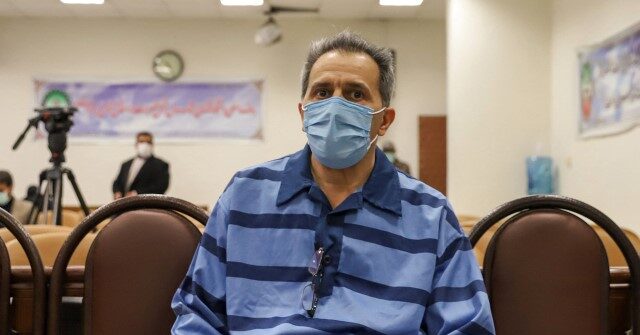The abduction and subsequent execution of Jamshid Sharmahd by Iran has sparked condemnation from his daughter, Gazelle Sharmahd, who expressed her outrage towards President Joe Biden and Vice President Kamala Harris for what she perceives as their abandonment of her father during ongoing diplomatic negotiations with the Iranian regime. The Iranian judiciary confirmed the execution, which followed a death sentence imposed on Sharmahd in February 2023, based on allegations of “terrorism.” Originally abducted in a foreign country during a layover, Sharmahd was known for his activism in promoting human rights and civil liberties in Iran, leading a dissident media platform that reported critical perspectives on the Iranian government.
Sharmahd’s case has drawn considerable attention from human rights organizations, including Amnesty International, which described him as a political prisoner. They noted that Sharmahd had consistently denied any involvement in violent acts that Iranian authorities attributed to him, specifically those claimed by a dissident group. Gazelle Sharmahd has been a vocal advocate for her father’s freedom since his abduction in 2020, criticizing the Biden administration for a perceived lack of urgency in addressing her father’s plight. Her discontent grew following a prisoner swap deal that resulted in the release of five American citizens in exchange for $6 billion in Iranian assets, a transaction the Biden administration insisted did not constitute a ransom.
The release of $6 billion led to heightened tensions, especially following the October 7 massacre carried out by Hamas, which reportedly claimed the lives of approximately 1,200 people. Gazelle Sharmahd highlighted the contradiction of negotiating with Iran while ignoring the fates of other individuals like her father. In a recent video posted to social media, she chastised leaders from the U.S. and Germany for their inaction in the face of her father’s execution, demanding immediate accountability and the return of her father, either deceased or alive, insisting that mere statements of condolence were wholly inadequate.
Expressing her disillusionment with the Biden administration, Gazelle Sharmahd made pointed criticisms, accusing officials of shifting responsibility and failing to protect her father. She expressed anger towards Biden’s deputy special envoy for Iran, Abram Paley, who condemned the execution as “abhorrent” but appeared to take no concrete action during the years her father faced judgment in Iran. Her statements suggested that the U.S. government had betrayed both her father and their family by offering financial resources to his captors at the same time Sharmahd was sufferings torture and potential execution.
Myriad emotions were encapsulated in Gazelle Sharmahd’s previous interviews where she characterized the hostage deal that freed several Americans as “horrific.” She emphasized the injustice of leaving other hostages, including her father, behind in negotiations that ultimately prioritized certain individuals over others. Gazelle brought attention to the unfulfilled obligation of the U.S. government to protect its nationals abroad, especially given her father’s long-standing ties to the nation, where he had resided for approximately two decades as a lawful citizen. Her assertion that he could have obtained citizenship if he had not been detained underscored her belief that the U.S. had a moral and ethical responsibility to act.
Furthermore, Gazelle Sharmahd painted a picture of an emotionally charged and unfair scenario, articulating that her father’s experience—marked by kidnapping, torture, and wrongful imprisonment—reflected systemic failures in the international community’s response to human rights violations in Iran. Her determination to seek justice for her father and accountability from Western leaders posed a challenge to the broader narrative surrounding negotiations with authoritarian regimes. This situation emphasizes the complexities and human costs associated with diplomacy, particularly when prioritizing financial agreements over individual lives caught in dangerous circumstances. Gazelle’s public pleas resonate with many families bearing similar burdens, reflecting a deep yearning for action and justice, rather than mere political posturing and rhetoric in the face of grave human rights abuses.

